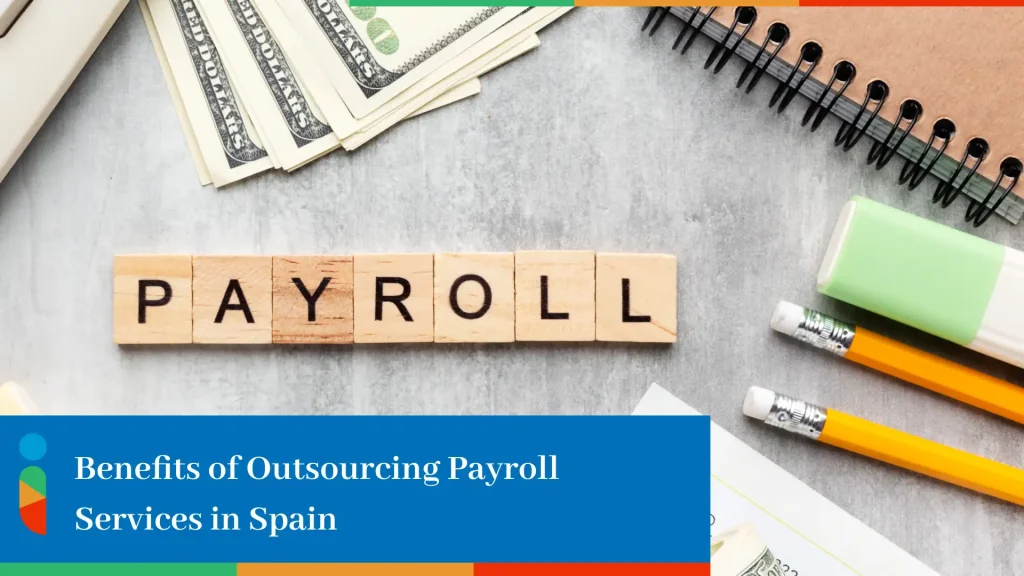The probation period in Spain, also known as the pre-contractual period, is an initial period of employment for new hires. It is typically around 3 months in length and gives employers the opportunity to evaluate the performance and suitability of the employee. During the probation period, they expect the employee to demonstrate their skills. Also, their knowledge and commitment to the job while the employer evaluates their performance.
In this article we will explain everything you need to know when it comes to probation period in Spain. To pass the probation period successfully, the employee should focus on meeting the job requirements. Furthermore, fulfilling the expectations of the employer and building a positive relationship with colleagues.
Understanding Spain’s Probation Period Regulations and Duration
This period for workers that is regulated by the labor law of the country. Probation period allows employers to assess a new hire’s job performance. Additionally, to determine if the new hire is suitable for their job. It also gives the new hire an opportunity to decide if the job is good for them.
The duration of a probation period in Spain is typically six months, but it can extend to one year with the consent of the employee. During this time, the employer can decide to terminate the contract without providing a reason. However, they must provide a written notice of termination and any applicable severance pay.
The employee’s rights during the probation period are similar to those of a regular employee. This includes:
- The right to receive the minimum wage or average salary
- Have their payment for overtime
- Rest days
- Holidays
Additionally, the employee is protected from discrimination and unfair treatment.
At the end of the probation period, the employer must provide the employee with a written evaluation. This evaluation can either be positive or negative and will determine if the employee will be kept on or let go. If the employer decides to keep the employee, the probation period ends and the employee is considered a regular employee.
However, it is important that the worker has their employment visa if necessary.
Comprehending Spain’s Probation Period Unveiling Regulations and Duration for a Smooth Transition
Spain is a popular destination for expats looking to move abroad, but one of the most important things to consider before doing so is understanding the country’s probation period regulations. It is important to know the length of the probation period, the rules governing it, and how to make the most of it.
The probation period Spain is usually six months, but this can vary from company to company. During this time, the employer will be closely monitoring the employee’s performance and progress, and will be evaluating their suitability for the job. They expect the employee to demonstrate their commitment to the role. Additionally, they mus show that they can work well with the team and contribute to the company’s success.
It is important to understand that the probation period is a two-way street. The employer should also provide the employee with feedback and support during this time so that they can succeed. For example, the employer should provide training and resources, as well as feedback on performance. The employee should also take the initiative to ask questions and seek feedback from their employer.
The probation period is an important time for both the employer and the employee. By following the rules and regulations, and taking the opportunity to prove their worth, employees can make the most of this period and secure a successful transition into their new job in Spain.
Strategies for Success Navigating Spain’s Probation Period Effectively
- Understand the probation period:
Learn about Spain’s probation period laws and regulations to ensure you are aware of your rights and obligations. Also, stay up to date with Spanish Labor Law all the time.
- Have open communication:
Make sure you are open and honest with your employer about your expectations and concerns during the probation period.
- Set goals:
Set realistic goals for yourself and your employer. Make sure you are clear about what your employer expects from you and what you expect from them.
- Get feedback:
Ask for feedback from your employer and colleagues during the probation period. This can help you understand if you are on the right track.
- Do not be afraid to ask questions:
If you do not understand something that is occurring, do not be scared afraid to ask for clarification.
- Take initiative:
Show your employer that you are a valuable asset by taking initiative and showing that you are willing to go above and beyond.
- Stay organized:
Make sure all of your documentation is in order and up-to-date. This will ensure that everything is going well in a timely manner.
- Take breaks:
Remember to take breaks throughout the day to give yourself time to recharge.
- Be proactive:
Make sure you are proactive in your job search and in networking with potential employers.
- Stay positive:
Keep a positive attitude throughout the process. This will help you stay motivated and focused on achieving your goals.
- Pay your taxes:
Be familiar with the taxes in Spain in order to be up to date with the law.
Effective Approaches Excelling Through Spain’s Probation Period Challenges
Excelling through Spain’s probation period challenges requires a lot of effort and dedication. It is important to have a clear understanding of the expectations that the company has for the employee and to ensure that those expectations are met. It is also important to have a positive attitude and to be willing to learn and adapt to the new environment. Additionally, it is important to stay organized and to stay on top of any tasks that are assigned.
Good communication is also key to success during the probation period. It is important for employees to be able to communicate their thoughts and ideas effectively with their managers and colleagues. This will help to ensure that the employee is on the same page and that any misunderstandings or disagreements can be addressed and resolved quickly.
It is also important to be proactive and to take initiative in order to demonstrate the value that the employee can bring to the company. This can be done by suggesting new ideas, suggesting solutions to existing problems and offering assistance to colleagues.
Finally, it is important to be resilient and to embrace any challenges that come up during the probation period. This requires employees to be open to feedback and criticism and to view it as an opportunity to learn and grow. By doing so, employees will be able to use their experiences during the probation period to become more effective at their job and to meet the expectations of the company.
Navigating Spain’s Probation Period Key Strategies for Professional Advancement
- Research Spain’s labor laws:
Familiarize yourself with Spain’s labor laws, as all employment contracts in Spain must adhere to these laws.
- Understand the probation period:
The probation period Spain typically lasts three to six months and serves as a time of evaluation for both the employer and the employee.
- Set clear expectations:
Make sure that you have a clear understanding of what they expect from you during the probation period and set your own expectations for your performance.
- Leverage your resources:
Utilize resources such as mentors, colleagues, and professional networks to help you navigate the probation period.
- Focus on your performance:
Put your best foot forward and focus on your performance, as employers often use this time to determine if you are the right fit for the company.
- Practice cultural awareness:
Be mindful of Spain’s unique culture and etiquette in the workplace. Take the time to learn the accepted values and norms in Spain.
- Establish relationships:
During the probation period, take the time to build relationships with your colleagues and superiors. This will help you gain a better understanding of Spain’s corporate culture and build trust with your employer.
By following these strategies, you can successfully navigate the Spain probation period and move forward in your professional development.
Performance Excellence Elevating Skills During Spain’s Probation Period
During Spain’s probation period, Performance Excellence (PE) initiatives implement to elevate skills and ensure successful job performance. PE initiatives include goal-setting, training and development, performance tracking, and feedback.
Goal-setting is the foundation of successful performance and should focus on measurable outcomes and individual objectives. Training and development should be tailored to the individual and focus on building the necessary skills and knowledge to accomplish the desired outcomes. Performance tracking can be done with checklists, tests, or surveys to measure the progress and identify areas for improvement. Finally, feedback should be timely and honest in order to provide the necessary guidance and support for the individual to succeed.
By implementing PE initiatives during Spain’s probation period, employers can ensure that the individual is equipped with the necessary skills and knowledge to succeed in the role. Additionally, these initiatives help employers identify areas of improvement early on and provide the individual with the necessary support and guidance to reach their performance goals. Ultimately, PE initiatives help ensure that employees are accountable for their performance. Also, that they have the tools to succeed in the job.
Career Growth Tactics Maximizing Spain’s Probation Period Opportunities
Spain’s probation period offers an excellent opportunity for career growth and development. During this period, employees can explore their strengths, receive feedback, and acquire new skills or knowledge. To maximize the potential of this period, it is important to be proactive and take initiative.
First, employees should take advantage of the feedback they receive from their supervisor. It is important to act on the feedback and use it to identify areas of improvement. This is a great way to demonstrate commitment and progress in the organization. Additionally, it is important to take initiative and volunteer for tasks and projects beyond the scope of the job. This will allow employees to gain new experiences and skills.
It is also a good idea to network with colleagues and build relationships with other departments. This can help build a strong professional network and make employees more visible to potential employers. Lastly, employees should take the initiative to stay informed and up-to-date with the latest trends in the industry. This will help them stay competitive and increase their marketability.
Overall, the probation period in Spain is a great opportunity for career growth and development. To maximize this period, it is important to be proactive and take initiative. This includes taking feedback from the supervisor, volunteering for projects, building relationships, and staying informed. By taking advantage of the probation period, employees can have a successful career and reach their full potential.
Proactive Steps Mastering Spain’s Probation Period for Career Advancement
A successful career advance in Spain often requires mastering the probation period. Reactive steps to achieve this include:
- Understand the legal requirements:
Make sure to research the laws governing probation periods in Spain. This includes familiarizing yourself with the terms and conditions of the probation period, the duration of the period, and the rights of the employee and employer.
- Develop a plan:
Create a plan that outlines your goals for the probation period. This should include clear objectives. Such as, building relationships with colleagues, networking, and learning new skills.
- Utilize resources:
Utilize the resources available to you. For example, mentors, colleagues, and online courses. This will help you make the most of your probation period and increase your chances of success.
- Make connections:
Reach out to individuals in the industry who can provide advice and guidance. Connecting with the right people can help you build your network and find new opportunities.
- Take initiative:
Show your employer that you are a motivated and self-directed individual who is willing to take on new challenges. This will demonstrate your commitment to the job and help you make a positive impression.
By following these proactive steps, you can make the most of your Spain probation period and increase your chances of career advancement.
Conclusion

From the above discussion, it is clear that there are many benefits of learning a new language. It can help to open up new opportunities, increase cultural awareness, and lead to greater confidence. It can also improve communication skills, and even help improve cognitive abilities. In addition, it can help to increase job prospects, and make it easier to communicate with people from different cultures. Learning a new language can be a great way to open up new possibilities and enhance one’s life. It can be a great way to broaden one’s horizons and develop new skills. Despite the challenges that come with learning a new language, the rewards are definitely worth the effort.
However, if you need more information on this subject, you can contact us today. We will be happy to lend out a hand.






